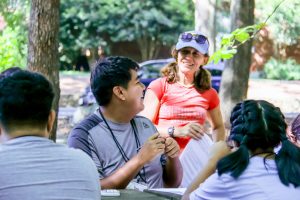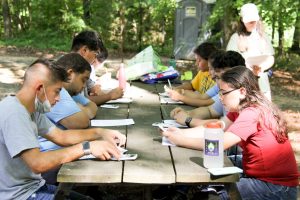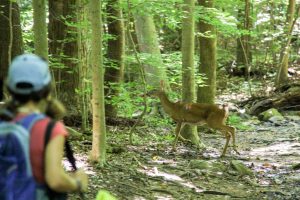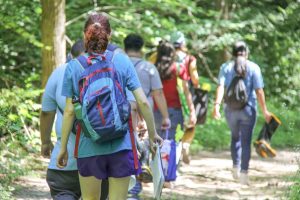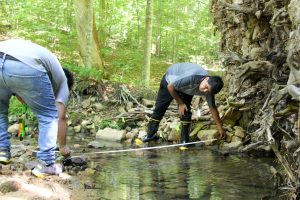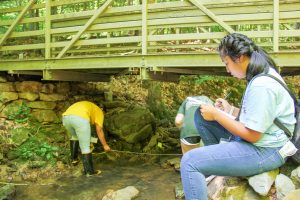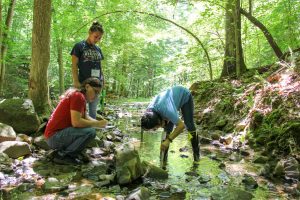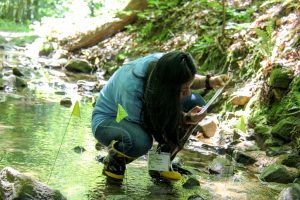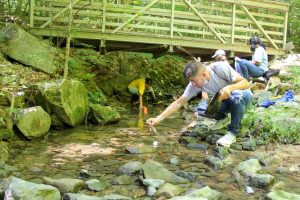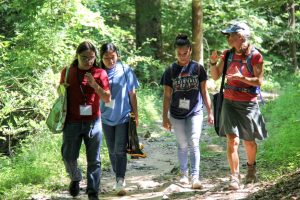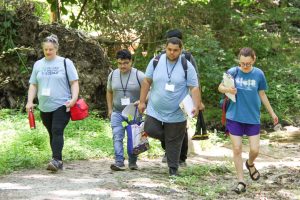Geoscience interns explore Battle Park Water Lab (Photo Essay)
December 6, 2021Over the summer, students in the Summer Geoscience Internship Program spent time exploring labs and sites around UNC and Chapel Hill, NC for their summer internship experience. Students in this program are from Robeson Early College High School in Robeson County, N.C. In this photo essay, the interns engaged in a stream assessment at Battle Park on UNC-Chapel Hill’s campus. Led by Megan Hughes, STEM Diversity Program Manager and Environmental Health Educator for the UNC Institute for the Environment’s Center for Public Engagement with Science, this program is conducted in partnership with faculty from UNC-Chapel Hill, UNC-Pembroke, and Robeson Early College High School with financial support from Burroughs Wellcome Fund. More information about the program can be found here: https://ie.unc.edu/self/.
The interns met Megan Hughes (UNC IE), Megan Plenge (Earth, Marine, and Environmental Sciences), Wayana Dolan (Ph.D. student, Geological Sciences), and Hailey Galit (May 2021 graduate, Geological Sciences) near the Forest Theatre, at the Battle Park trailhead, for a lab orientation.
The interns divided into three groups to profile different sections of the stream.
Field boots, measuring tape, and floating balls were all used to determine physical characteristics of the stream.
Each group recorded data streamside in order to compare data with other groups.
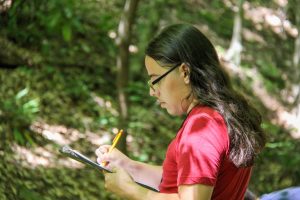
During the hike down to the stream and back, interns talked with the facilitators about college and career pathways in environmental science.
During their three weeks in Chapel Hill, the interns explored other sites of ecological and geological importance including the Haw River (Saxapahaw), Duke Forest (Durham), and the North Carolina Museum of Natural Sciences (Raleigh). They also engaged in activities with faculty and staff from the American Indian Center, Carolina Latinx Center, Institute for the Environment, and Earth, Marine, and Environmental Sciences.

